Animals
-
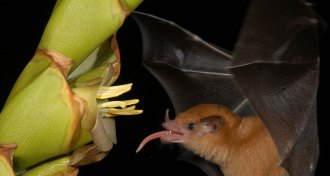 Animals
AnimalsSome bats chug nectar with conveyor belt tongues
Grooved bat tongues work like escalators or conveyor belts, transporting nectar from tip to mouth.
-
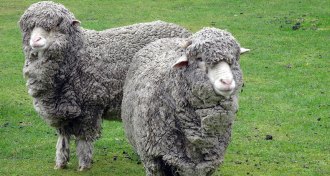 Animals
AnimalsMath describes sheep herd fluctuations
Scientists have developed equations to describe the motion of a herd of sheep.
-
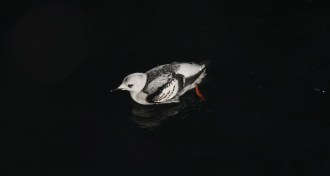 Animals
AnimalsLife in the polar ocean is surprisingly active in the dark winter
The Arctic polar winter may leave marine ecosystems dark for weeks on end, but life doesn’t shut down, a new study finds.
-
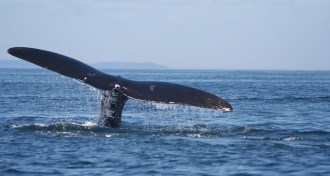 Animals
AnimalsDon’t judge a whale’s gut microbiome by diet alone
Evolutionary history and diet may both determine the microbes that live in a baleen whale's stomach, researchers report.
-
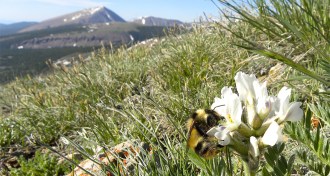 Animals
AnimalsAlpine bee tongues shorten as climate warms
Pollinators’ match with certain alpine flowers erodes as climate change pushes fast evolution.
By Susan Milius -
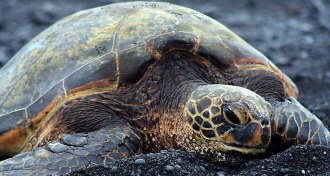 Animals
AnimalsHow to see sea turtles — without bothering them
Sea turtles come out of the water to lay eggs on beaches. It’s a great time to see the reptiles — if you know what you are doing.
-
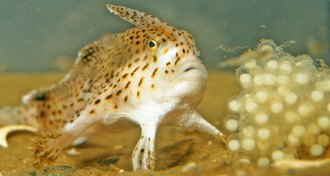 Animals
AnimalsThese fish would rather walk
Slowpokes of the sea, frogfish and handfish creep along the ocean bottom.
By Susan Milius -
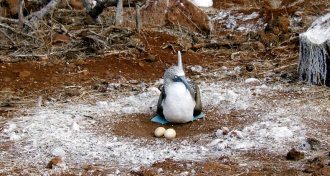 Animals
AnimalsBlue-footed boobies dirty their eggs to hide them from predators
Blue-footed boobies lay bright white eggs on the ground. Dirtying the eggs camouflages them against gulls, a new study finds.
-
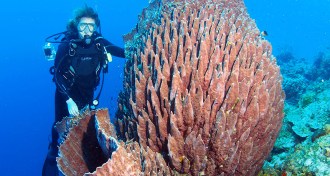 Oceans
OceansGiant barrel sponges are hijacking Florida’s coral reefs
Giant barrel sponges are gradually taking over and threatening Florida’s coral reefs, a new census suggests.
-
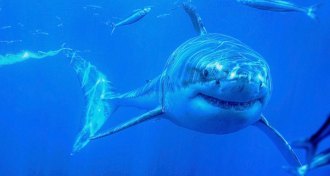 Animals
AnimalsWhy we need predators
It might be easy to say that we should wipe out species that can kill us. But the effects of such action would be far ranging.
-
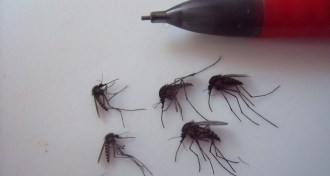 Animals
AnimalsWarmer waters give Arctic mosquitoes a growth spurt
Arctic mosquitoes develop faster in warmer waters, outpacing increased predation.
-
 Animals
AnimalsDogs flub problem-solving test
Confronting a tough task, dogs are more likely than wolves to give up and gaze at a human
By Susan Milius